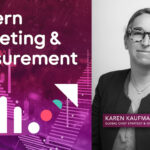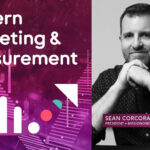By R. Larsson, Advertising Week
In an industry that spends billions decoding emotion—through neurotech, sentiment analysis, and biometric testing—how often do we ask the bigger question:
What role do brands play in shaping those emotions to begin with?
That question grounded one of the most quietly radical conversations at Cannes Lions this year.
Hosted during Converge @ Cannes, a boutique hotel takeover hosted by Charles Ifegwu, (Founder of creator agency Convergence), and Tina Mulqueen (SVP of Digital Transformation at Burson and Co-Founder of Converge), the panel featured Dr. Deepak Chopra, who offered a deeply resonant call to action:
“Brands are storytellers—and stewards. The stories we tell matter. They shape our mental, emotional, and social reality. We must tell stories that foster human flourishing.”
A Golden Hour of Reckoning
The session—set amidst a garden-inspired backdrop at Le Hotel Suquet – wasn’t just a conversation about marketing. It was a wake-up call.
Dr. Chopra was joined by Poonacha Machaiah (CEO, Cyberhuman AI), Heike Young (Head of Content, Social & Integrated Marketing at Microsoft), and Paul D’Arcy (CMO, Moloco), with Mulqueen moderating. Together, they explored how brand leaders might evolve from creators of influence to custodians of mental wellbeing.
Machaiah anchored the discussion in urgency:
“Every 40 seconds, someone dies by suicide globally. That’s one of the greatest epidemics of our time. How do we use technology to alleviate suffering?”
The statistic pointed to a broader truth: our ad-supported internet—optimized for engagement, driven by attention—isn’t emotionally neutral. It’s shaping norms, feeding anxiety, and, increasingly, taking a toll on mental health.
From Manipulation to Stewardship
Mulqueen, whose work has long examined the ethical use of ad dollars, challenged attendees to consider a new role for the brands they represent.
“We spend millions trying to understand the emotional state of consumers—but rarely ask what role we play in fostering it. What if we took that responsibility seriously?”
This theme of intentionality—in message, medium, and model—echoed throughout the conversation.
At Microsoft, Heike Young described how AI is being used not just to increase efficiency, but to address emotional blocks in the creative process.
“We’ve been exploring how AI can help people tame their creative demons—imposter syndrome, perfectionism, burnout,” she said. “With intention, AI can be a tool for resilience.”
A New Model for Intelligence
Dr. Chopra underscored the importance of redefining intelligence in this era of acceleration:
“Data is not information. Information is not knowledge. Knowledge is not wisdom,” he said.
“Our AI is broken if it is not aligned with who we truly are.”
He cautioned against replicating fractured human systems in our technological ones, and instead invited the room to consider how storytelling—at scale—can either expand or constrict our humanity.
What Comes Next
The takeaway was clear: brands are not just economic players. They are narrative engines with vast cultural influence—and it’s time to wield that influence with care.
The session ended with a sense of shared responsibility.
As one attendee reflected:
“This wasn’t just a panel. It was an invitation to rethink what we’re building—and who we’re building it for.”











